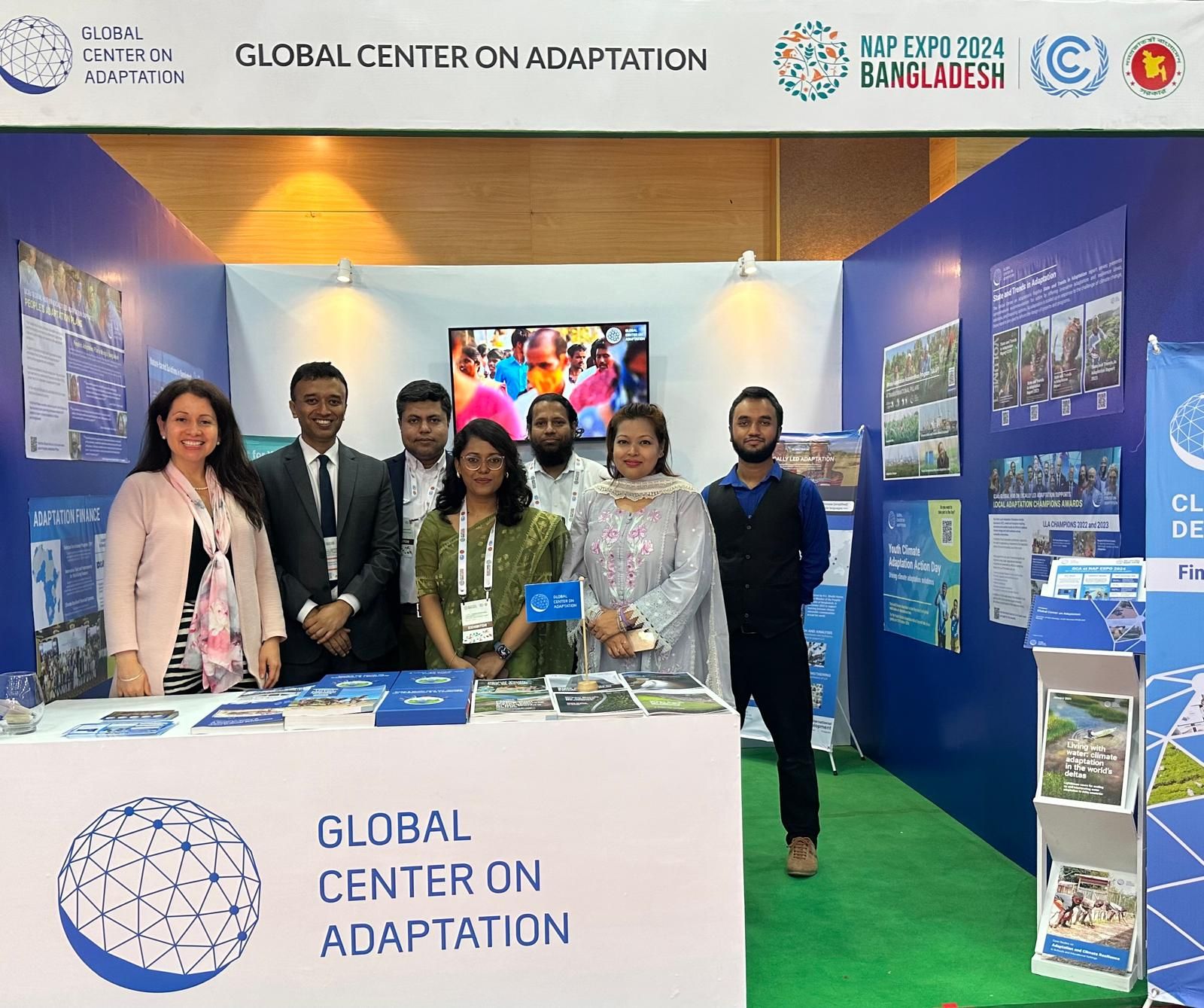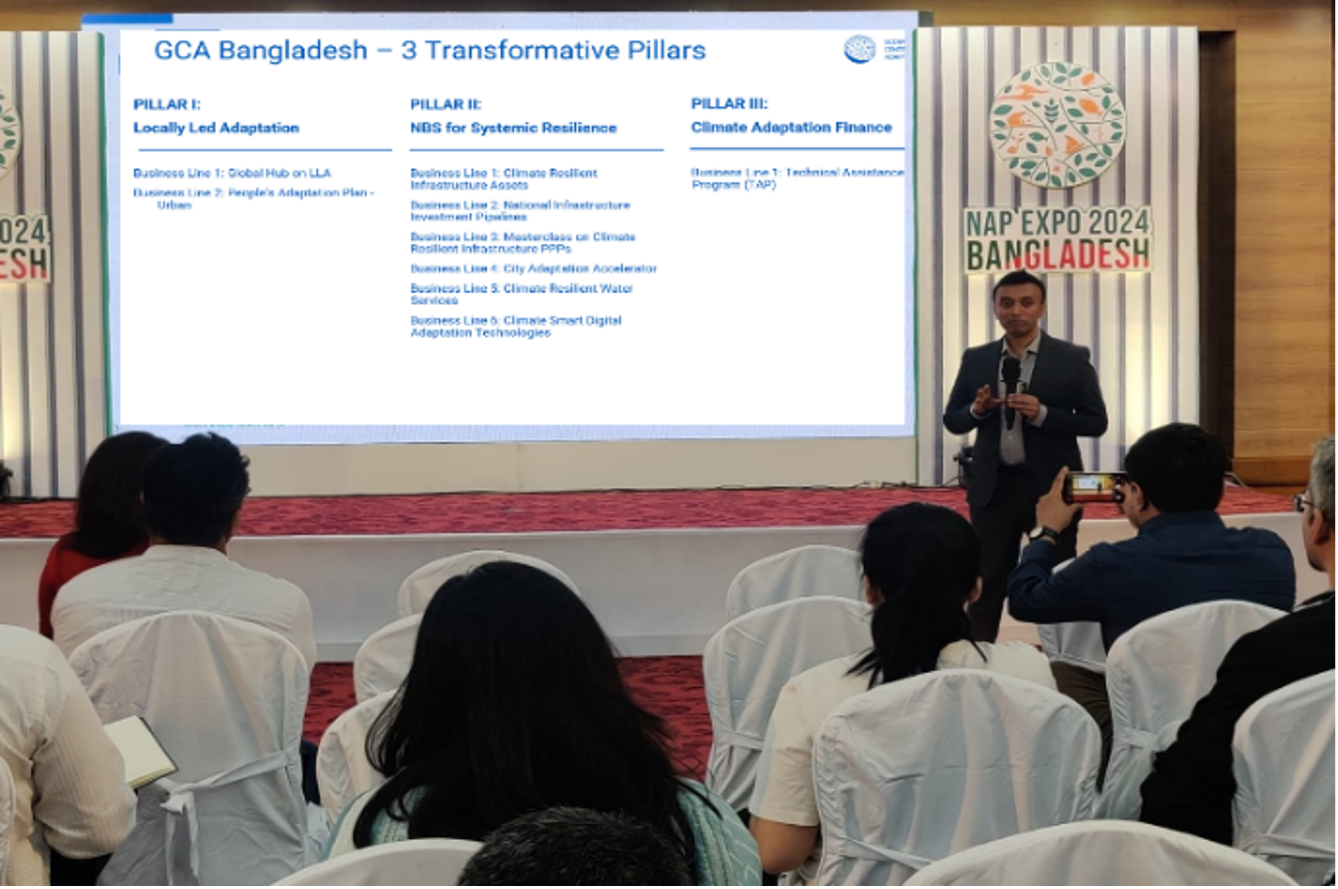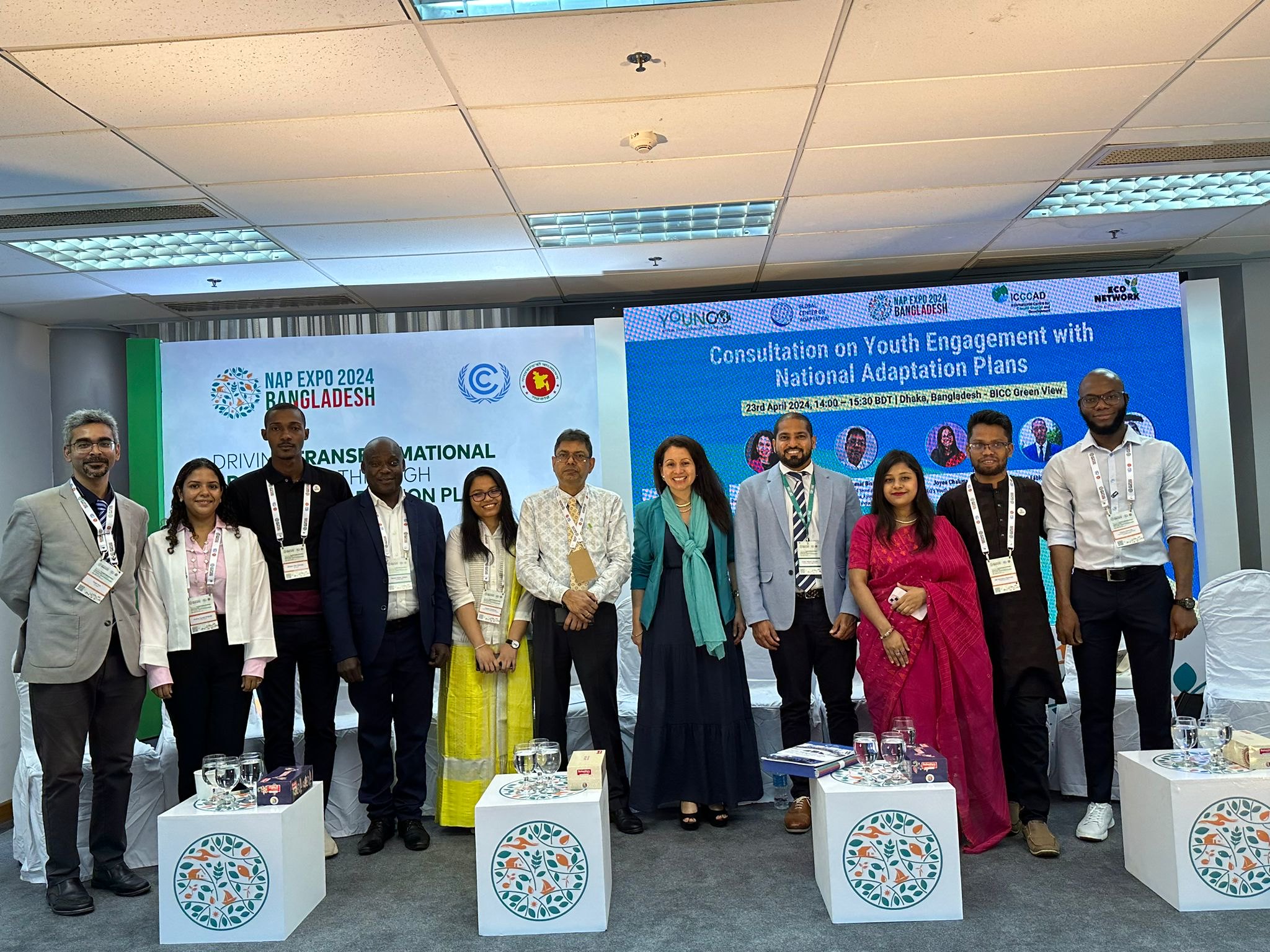Elevating Climate Resilience: The Global Center on Adaptation at NAP Expo 2024
During the 2024 NAP Expo, the Global Center on Adaptation showcased its significant contributions to climate adaptation
I
n Dhaka, Bangladesh in late April, the Bangabandhu International Conference Centre became a crucible of global climate action as it hosted the NAP Expo 2024. This annual event, dedicated to supporting countries’ national adaptation plans or NAPs, was themed “Driving Transformational Adaptation through National Adaptation Plans.”
The four-day symposium was organized by the Least Developed Countries Expert Group under the United Nations Framework Convention on Climate Change (UNFCCC) and hosted by the government of Bangladesh. The event, which drew delegates from 104 countries, was a melting pot of innovative ideas and partnerships aimed at driving transformational climate adaptation through national adaptation plans.

GCA showcased its pioneering work in Bangladesh and programmatic work in locally led adaptation, nature-based solutions for systemic resilience, and climate adaptation finance at the NAP Expo booth
GCA’s engagement at NAP Expo 2024
During the Expo, the Global Center on Adaptation (GCA) showcased its significant contributions to climate adaptation. High-profile visitors to the GCA booth included Prime Minister Sheikh Hasina of Bangladesh, UNFCCC Executive Secretary Simon Stiell, and Bangladesh Environment, Forest and Climate Change Minister Saber H. Chowdhury.
Through its booth, the Center showcased its pioneering work in Bangladesh and programmatic work in locally led adaptation, nature-based solutions for systemic resilience, and climate adaptation finance. The booth also displayed GCA’s annual flagship State and Trends in Adaptation reports, which provide analyses of global progress and challenges in climate adaptation.

During an interactive session, Water and Urban experts from GCA and the Asian Development Bank shared their insights and progress on a collaborative nature-based solutions initiative, the Improving Urban Governance and Infrastructure Project. They highlighted the project’s focus on improving urban governance and infrastructure, reducing urban poverty, and enhancing living conditions through sustainable urbanization and better city governance.
GCA’s involvement in this partnership has been pivotal. The Center’s technical assistance and support is enhancing the capacity of Bangladesh’s Local Government Engineering Department and other stakeholders by developing detailed guidelines for risk-informed urban master plans. It is creating a nature-based solutions compendium for resilient urban areas, and conducting urban climate resilience masterclasses. These initiatives are crucial for building more climate-resilient cities and municipalities.
Youth engagement at the forefront
The Center, in collaboration with the UNFCCC Least Developed Countries Expert Group, YOUNGO (the UNFCCC’s official youth constituency, the International Center for Climate Chance and Development, and various development partners, hosted a consultation on “Youth Engagement with national adaptation plans.”
The session brought together governments (including Bangladesh and the COP28 Presidency), youth organizations, members of GCA CEO’s Youth Advisory Panel, and development partners to showcase best practices and recommendations for involving young people in national climate adaptation policies.
Twelve speakers shared their experiences and insights. Notable contributions came from Professor Tapan Kumar Biswas, who discussed Bangladesh’s efforts in youth inclusion, and Benon Yassin from the UNFCCC Least Developed Countries Expert Group, who emphasized the importance of youth inclusion in climate adaptation policies in vulnerable countries.

Key takeaways from the consultation on youth engagement with national adaptation plans
- Young People are key partners in climate adaptation. Recognizing young people as equal partners is crucial for effective climate adaptation strategies. Active involvement in all stages of national adaptation planning processes is essential.
- Young people are not a homogeneous group. It is important to address the specific vulnerabilities and needs of young people in both rural and urban areas is vital for equitable adaptation efforts. A “one-size-fits-all” approach won’t work.
- It is urgent to break down barriers to youth participation. Challenges such as lack of information, access to planning processes, training opportunities, and financial resources hinder youth engagement. Targeted support is needed to overcome these barriers, especially for young people from vulnerable communities.
- Raising public awareness and strengthening the capacity of young people is key. Empowering young people through awareness campaigns and capacity-building programs is key to driving meaningful participation in climate adaptation action.
- Creative approaches to youth participation in climate action are most effective. Utilizing music, theater, social media, and storytelling can effectively engage young people in climate action. São Tomé and Príncipe’s national adaptation communication plan, where young people are key stakeholders, is a good practice which includes several innovative approaches to youth engagement.
Looking Ahead
These engagements led to further consultations with governments and young people at the UNFCCC Bonn Climate Change Conference in early June. The outcomes of the youth consultation will contribute to GCA’s upcoming Guide on Youth Engagement with National Adaptation Plans, set for launch at COP29 in Azerbaijan. This guide will address the needs, challenges, and enablers of youth engagement, offering best practices and recommendations to foster youth participation in adaptation policy and action.
Warning: Undefined variable $selectorClass in /var/www/staging/wp-content/themes/gca/src/Blocks/custom/contact-info/contact-info.php on line 17

Silvi Razzaque is the Operations Officer at the Global Center in Adaptation South Asia Regional Office.
Warning: Undefined variable $selectorClass in /var/www/staging/wp-content/themes/gca/src/Blocks/custom/contact-info/contact-info.php on line 17

Niccolò Delporto is a Program Officer, Youth Leadership at the Global Center in Adaptation.